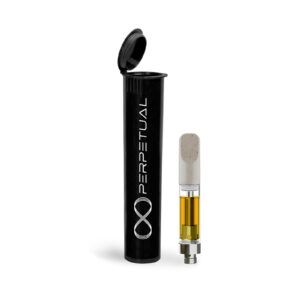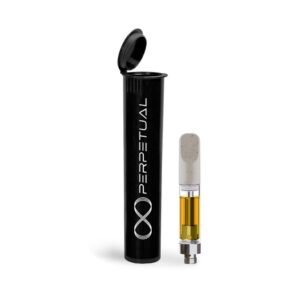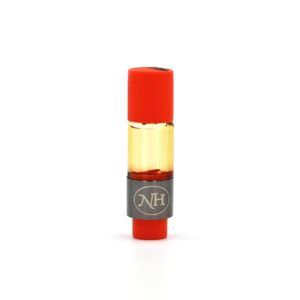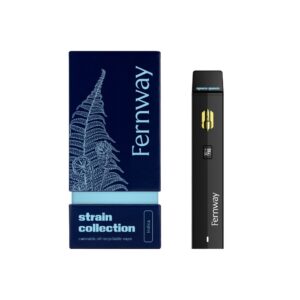Medicinal Marijuana Benefits
Medicinal Uses of Marijuana and Cannabis
The ancient texts of the Greeks, Romans, Assyrians, and Indian Hindus. Here you will find what medical professionals and public officials are awakening to after thousands of years: Cannabis isn’t just about altering your mental state. It’s also good medicine.
Why has it taken so long for cannabis’s benefits to take the medical community by storm? The U.S. government still classifies marijuana as a category 1 substance. The result: the government provides zero funding to researchers investigating cannabis’s health benefits.
Medical studies, therefore, are limited. But that hasn’t stopped doctors in 39 states and the District of Columbia from legally prescribing medicinal cannabis to their patients.
We compiled the information in this section as a starting point for you to explore this new era in the ever-expanding universe of medicine.
Disclaimer: What the “Medicinal Uses” section of the “Cannabis Buying Guide” is not.
The U.S. Food and Drug Administration has not reviewed this guide – or the Comm Ave. Canna website – for its statements about the health benefits and effects of cannabis products.
This guide and our website are not substitutes for medical manuals, references, or textbooks. And they don’t replace the recommendations, diagnoses, or therapies of licensed medical professionals.
If you are considering cannabis for medicinal use, consult your doctor first. Your doctor can alert you to any precautions and answer questions about adverse effects, uses, dosages, directions, and consumption methods.
Peace, and enjoy your cannabis safely,
The Comm Ave Canna Team
Treating the Symptoms of Common Medical Conditions with Cannabis
Anxiety and Depression
Researchers believe THC and CBC may ease the symptoms of anxiety and depression by acting upon the parts of the brain that regulate mood, anxiety, and emotion. Today, though, research on human beings is limited. Nevertheless, eight studies reviewed in 2017 reported that anxiety relief was a primary or secondary benefit of medical cannabis.
Always talk with your doctor before consuming medical cannabis for anxiety or depression. Not interested in a treatment that will get you high? Ask your doctor about medical cannabis products that are rich in CBD and also contain little-to-no THC.
Arthritis
THC and CBD in combination are effective in reducing inflammation. That’s great news if you suffer from chronic pain or the nagging discomfort caused by osteoarthritis (OA) or rheumatoid arthritis (RA).
A medical task force during the 2022 annual PAINweek conference developed new guidelines for using medical cannabis to treat chronic conditions like OA. They recommended starting with low doses of THC and CBD, eventually increasing to higher doses.
That’s not all. A 2017 review of 10,700 studies found that cannabis can relieve chronic pain, the hallmarks of OA and RA.
The Arthritis Foundation has “no serious safety concerns have been associated with moderate doses” of CBD. As always, talk with your doctor before using CBD or other cannabis compounds to treat your OA or RA symptoms.
Asthma
Medical cannabis may help ease asthma symptoms like wheezing and shortness of breath. One and an article by a top researcher in the journal Nature note that cannabis may act as a bronchodilator. For decades, doctors have prescribed bronchodilators to relax the lungs and widen the air passages of asthma sufferers.
A physician who is also a leading researcher of medical marijuana treatment notes that patients have reported relieving their asthma symptoms by using THC-rich cannabis in low doses.
Know that smoking and vaping marijuana may worsen lung inflammation and irritation. To avoid smoking and vaping and their potential side effects, many patients have turned to alternative methods like topicals, tinctures, and edibles.
Consult your doctor before using cannabis to treat your asthma symptoms. Your doctor may prescribe another cannabis product that excludes the risks of smoking or vaping.
Bronchitis
Coughing. Spasms. Shortness of breath. Pain. Relentless mucus production. These are a few of the nasty symptoms of chronic bronchitis, as well as temporary bronchitis. Some studies have shown that cannabis may act as a bronchodilator. So shouldn’t cannabis be used as a remedy for bronchitis symptoms?
A systematic review of the evidence concluded that cannabis may relieve the symptoms of pulmonary diseases, like bronchitis. But long-term smoking of marijuana can increase the risk of damage to the lungs and pulmonary system.
Research is ongoing, and data is still limited. The outlook, though, is so promising that the American Lung Association is encouraging more research into its use to treat pulmonary disease.
Please: Talk to your doctor before trying cannabis to ease your bronchitis symptoms.
Cancer
Anecdotal evidence points to the tremendous potential of cannabinoids, the essential oils found in cannabis plants, to relieve cancer symptoms. Cannabinoids like THC and CBD may help ease debilitating symptoms like loss of appetite, poor sleep, and anxiety and depression in cancer patients.
The American Cancer Society reports that numerous, smaller research studies have concluded that smoking marijuana can help reduce the side effects of chemotherapy, like nausea and vomiting. The organization also notes that the drug can help reduce neuropathy (pain from damaged nerves) resulting from chemotherapy.
Doctors have successfully treated chemotherapy patients with cannabis since the ‘70s. The resulting groundswell has led to legalizing medical cannabis in 39 U.S. states and Washington, D.C.
Talk with your doctor before consuming medical cannabis for cancer symptoms.
Glaucoma
THC can reduce the eye discomfort caused by glaucoma called intraocular pressure. Numerous studies report relief of patients’ uncomfortable symptoms for three to four hours.
But as a long-term treatment for glaucoma symptoms, researchers and doctors today don’t recommend medical marijuana. The reason? Smoking marijuana every three to four hours isn’t practical for most people.
How about CBD then? Studies on rats showed that CBD increases their eyes’ intraocular pressure. CBD also can lower blood pressure, reducing blood flow to and damaging the optic nerves. The potential results are loss of peripheral vision and eventually blindness.
Today, the American Academy of Ophthalmology and the American Glaucoma Society advise against prescribing cannabis to treat glaucoma.
If you’re thinking about using cannabis to relieve your glaucoma symptoms, even temporarily, talk with your doctor first.
Insomnia
Medical marijuana can reduce anxiety, and it can relax and sedate you. These effects may help you get to sleep faster and stay asleep longer. Seventy percent of young adults in a survey reported that cannabis helped them get to sleep more quickly.
You’ve likely talked with friends who say cannabis helps them get better sleep.
But what do the experts say? The jury is still out due to scant evidence.
Insomnia is notoriously complex. It’s a symptom, not a medical condition or disorder. Many underlying medical conditions can cause insomnia, including cancer, chronic pain, diabetes, heart disease, acid reflux, to name a few. Not to mention sleep-specific disorders like restless legs syndrome and sleep apnea.
On top of that, our circadian rhythms and sleep cycle are still not fully understood. Ongoing research continually adds to our knowledge about sleep problems.
Some studies even show that the effects of cannabis can worsen the ability to fall and stay sleep. That’s another important reason to talk with your doctor before you try cannabis to relieve insomnia.
Irritable Bowel Syndrome
Few studies report that medical cannabis is useful in treating irritable bowel syndrome (IBS).
Diagnosing and treating IBS is complex. It’s a syndrome, a combination of one or more painful or uncomfortable symptoms, but not a specific disease.
Treating IBS challenges doctors because its causes are wide-ranging: early life stress or abuse, anxiety and depression, improperly formed intestines, bacterial infections, food intolerances, and genetic predispositions.
Some studies have reported that cannabinoids help reduce inflammation. This makes medical cannabis promising to relieve IBS symptoms like diarrhea, spasms, pain, and bloating.
As always, please consult your primary care doctor or a gastroenterology specialist before trying cannabis to relieve IBS.
Nausea
Nausea has many causes: indigestion, food intolerances, the side effects of chemotherapy, viruses, and a long list of medical conditions. Friends may have told you that smoking marijuana relieves their nausea. Now you’re thinking about trying it, too.
What does the evidence say?
The most promising findings come from chemotherapy research. In a study at the University of New Mexico, most patients reported that cannabis reduced their nausea. The National Academies of Sciences Engineering and Medicine state that cannabinoids are “one of the strongest available agents for chemotherapy-induced nausea.”
It may be tempting to light a joint to quell your nausea. But talk with your doctor first for an expert opinion.
Nerve Pain
The Cleveland Clinic reports that numerous researchers have conducted studies into the effectiveness of medical cannabis to treat nerve pain, or neuropathy. The news is good: The Cleveland clinic says the results overall support smoking or inhaling cannabis to reduce neuropathic pain.
And The American Cancer Society reports that some studies have found cannabis to be effective in treating neuropathic pain caused by chemotherapy.
Nerve pain is not a specific medical condition. Instead, it’s caused by a wide range of problems, like injuries, diseases, and disorders. Other causes include physical trauma, systematic autoimmune diseases, diabetes, vascular and blood diseases, infections, cancers, chemotherapy, and kidney and liver disorders.
In short, the causes of nerve pain are many. And complex. As with any other treatment, don’t start until you’ve first discussed it with your doctor.
Pain
The Cleveland Clinic reports that numerous researchers have studied the effectiveness of medical cannabis to treat nerve pain, or neuropathy. The news is positive: The Cleveland clinic says the results, overall, support smoking or inhaling cannabis to reduce neuropathic pain.
And the American Cancer Society reports that some studies have found cannabis to be effective in treating neuropathic pain caused by chemotherapy.
Nerve pain is not categorized as a specific medical condition. Instead, it’s caused a wide range of problems. The list includes physical trauma, systematic autoimmune diseases, diabetes, vascular and blood diseases, infections, cancers, chemotherapy side effects, and kidney and liver disorders.
As with any other treatment, don’t try it yourself until you’ve first discussed it with your doctor.
Panic Attacks
A review of eight scientific studies in 2017 reported that relieving anxiety is a primary or secondary benefit of using medical cannabis. One study found that medical cannabis can be effective in treating serious panic disorders.
That said, little evidence supports medical cannabis for preventing or stopping panic attacks. In fact, some researchers report that lifetime or occasional marijuana use may increase the likelihood of panic attacks.
Talk with your doctor or mental-health provider before you experiment with cannabis to treat panic attacks.
Post-Traumatic Stress Disorder
A 2020 observational tracked 150 patients with post-traumatic stress disorder (PTSD) who used cannabis to treat their symptoms. The findings: These patients’ reports showed they were “2.57 times more likely to no longer meet the DSM-5 criteria for PTSD.”
That same study, however, also recommends conducting more randomized controlled clinical trials to gather more evidence on the effects of different consumption methods of cannabis on PTSD.
Today, the U.S. Veterans Administration and licensed mental-health providers are your best source for diagnoses, treatments, and information about PTSD and using cannabis. Consult one of these health professionals to learn about all of the potential benefits and risks.
Sleep
Many people who have trouble sleeping are turning to medical marijuana for help. The drug does have sedative and relaxing effects. And millions are snapping up CBD products, many of them hoping to reduce their anxiety and improve their sleep.
The evidence, though, is inconclusive. A recent study reported that in 48 patients, their sleep scores improved in the first month by 66.7 percent. Over the long term, though, those scores fluctuated. The investigators recommended more randomized clinical trials to study the relationship between cannabis and sleep.
Stress
Stress is part of the human condition. We all experience it every day. Research study participants have reported reducing anxiety and stress as the second strongest reason why they consume marijuana. (Pain ranks number one.)
Many people, maybe your friends or co-workers, relieve stress by consuming cannabis. Cannabis use may even pay off over the long term: Reducing everyday stress can prevent developing chronic stress and serious anxiety disorders.
Animal studies have reported stress reduction benefits from consuming CBD or low doses of THC. Studies of human beings remain limited, but doctors in many states regularly prescribe cannabis to patients to reduce stress.
As always, talk with your doctor before using medical cannabis to manage stress.







